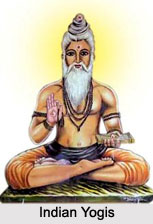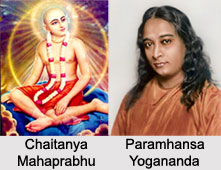 Indian Yogis or the spiritual leaders from the remote past have made various contributions in reshaping the Indian civilization. India in the eyes of the Western world is the land of spirituality.
Indian Yogis or the spiritual leaders from the remote past have made various contributions in reshaping the Indian civilization. India in the eyes of the Western world is the land of spirituality.
Famous Indian Yogis
India is a country of Yoga gurus, great Indian sages, saints and spiritual leaders. Some of the famous Indian Yogis are discussed below;
•Chaitanya Mahaprabhu: Chaitanya Mahaprabhu was a notable Indian yogi of the 15th century and belonged to the Vaishnava school of Bhakti yoga. He was also a social reformer.
•Sri Ramkrishna: Sri Ramkrishna was another well-known Indian yogi and an influential figure in the Bengal Renaissance of the 19th century.
•Maharishi Patanjali: Maharishi Patanjali is the "Father of Yoga" who compiled 195 Yoga Sutras that became the foundation of Yoga philosophy.

•Adi Shankaracharya: Adi Shankaracharya was a philosopher of the greatest renown because he brought new life to the Vedas and restored them to their ancient glory.
•Tirumalai Krishnamacharya: Tirumalai Krishnamacharya was an Indian yoga teacher, Ayurvedic healer and scholar. Often referred to as "The Father of Modern Yoga", Krishnamacharya is widely regarded as one of the most influential yoga teachers of the 20th century and is credited with the revival of Hatha Yoga.
•Paramahansa Yogananda: Paramahansa Yogananda is one of the pioneer Indian Yoga masters who introduced meditation and Kriya Yoga to the western world through his book "Autography of a Yogi".
•Maharishi Mahesh Yogi: Maharishi Mahesh Yogi is one of the great Indian Yoga gurus famous across the globe equally. Maharishi Mahesh Yogi was the founder of "Transcendental Meditation Techniques".
•BKS Iyengar: B.K. S. Iyengar is popularly known as "Guruji", who genuinely explains the meaning of Yoga sutras. He is one of the leading Yoga personalities in the world and popularises yoga across globe. Yogacharya Iyengar"s style of teaching Yoga is unique and termed as "Iyengar Yoga".
•Sri Sri Ravishankar: Sri Sri Ravi Shankar, popularly known as "Gurudev", has rekindled the traditions of yoga and meditation and has offered them in a form that works in the 21st century. He is the founder of the "Art of Living Foundation" and his service initiatives in the field of health, environment, conflict resolution and interfaith dialogue has found great resonance across the globe.
•Swami Ramdev: Baba Ramdev should be credited for his exemplary work of creating awareness about Yoga across commoners around the world. Baba Ramdev"s Pranayama modules are quite popular as yoga for weight loss. He influences Yoga practice at home by watching Yoga programmes on television. He established the Patanjali Yogpeeth and Centre of Yoga awareness at Haridwar.




















